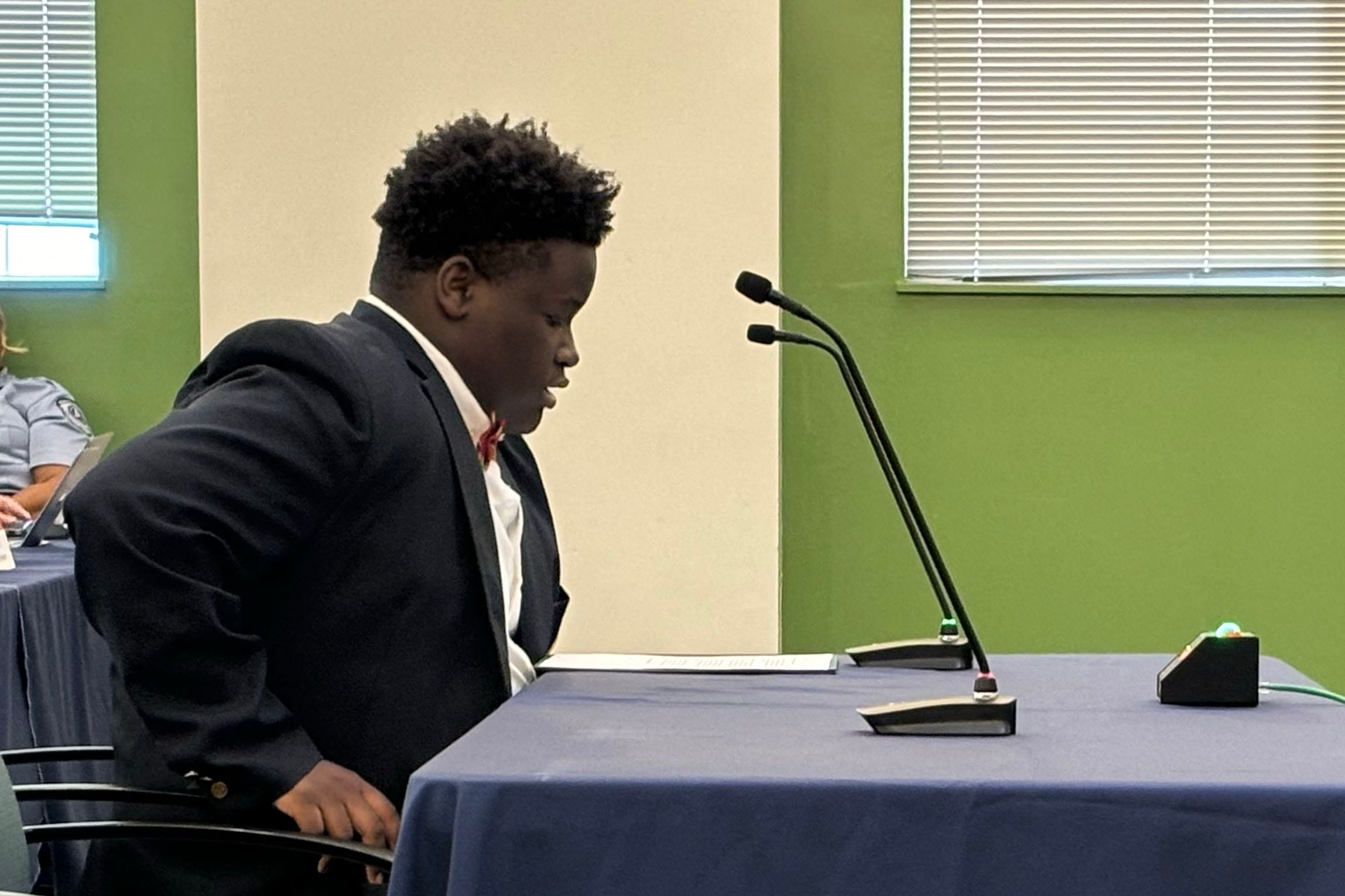The Philadelphia Board of Education voted for the fourth time Thursday to deny a charter for a proposed Global Leadership Academy International High School because the revised application did not meet academic, financial, or operational standards.
The board has five new members appointed by Mayor Cherelle Parker. But the board’s vote to reject the application from Global Leadership Academy (GLA) continues a significant multi-year trend: It has not approved a new charter school since Philadelphia regained local control of its schools from the state in 2018. Still, the privately managed but publicly funded schools — including cyber charters — now educate nearly 80,000 of the city’s students.
The vote was 7-0. Whitney Jones abstained and ChauWing Lam was absent. Jones, a finance manager who has worked for charter organizations, said he abstained due to a business conflict.
The board denied the application despite a statement of support from Councilman Curtis Jones and the political connections of Naomi Booker, a veteran city educator who is the driving force behind the two existing K-8 Global Leadership Schools.
The board did vote to grant five-year renewals, with conditions, to four other charters — Ad Prima, Laboratory Charter School of Communication and Languages, Mariana Bracetti Academy, and Maritime Academy — without any dissent.
In their final action meeting of the 2023-24 school year, the board also voted to approve a $20 million contract with various external nonprofits and community organizations to fund Parker’s year-round school initiative, which is kicking off this fall at 25 pilot schools.
During her mayoral campaign last year, Parker never made clear whether she favored creating more charter schools in the city. Instead, she stressed that she wanted to see an end to any competition between the district and charter sectors. But except for Jones, her new appointees voted against the revised GLA application.
Booker, who was present at the meeting but did not speak, is the founder and CEO of Global Academies, which runs Global Leadership Academy Southwest and Global Leadership Academy Charter School in West Philadelphia, both K-8 schools.
GLA Southwest, the former Huey Elementary, is one of 21 district schools that officials turned over to charter management under the Renaissance program with the promise of rapid transformation. That promise that has not been realized.
Six students from GLA Southwest, all wearing crisp navy blue blazers with the GLA logo, pleaded with the board to approve the new high school.
“Having another option like Global Leadership Academy Charter High School is important for students like me who need a good place to learn,” said Troy Williams, who described the stressful process of applying to selective district high schools.
“Parents are struggling to find a good high school that fits what we want.”
The two existing GLA schools would be feeders for the proposed high school, although GLA officials planned to open the new school in the former Cristo Rey building in North Philadelphia, far from the other schools’ West and Southwest Philadelphia locations. The proposed school was set to start with 150 students and expand to 600.
While applicants touted the new school as a destination for current GLA students, they also claimed the school would be a separate entity from the other GLA schools, Mariel Ziegler, interim chief of the district’s charter school office, told board members.
Board member Joyce Wilkerson wasn’t buying that. “I do believe it is the same operator, and think it is important to consider the academic performance of the schools they currently operate,” she said.
Ziegler’s presentation of the charter school office’s evaluation of GLA’s revised application showed that the two existing Global Leadership schools had much lower achievement levels than the district as a whole or a set of comparison schools.
In 2022-23, while 34% of district students and 35% of students in peer schools scored proficient on the state PSSA exam in English Language Arts, just 19% of GLA Charter School students did so. That figure also represented a sharp decline from the 40% proficiency that GLA’s schools reached in 2017-18. In math, just 4% of students reached proficiency, compared to 17% in the district as a whole and 15% in peer schools.
Wilkerson also questioned Global Leadership’s financial viability, citing its shaky credit rating despite an influx of federal pandemic aid: “It’s hard to believe the schools could be at risk of defaulting with all the federal resources out there.”
Jones, the councilmember who represents the district where the two existing Global Leadership schools are located, nevertheless urged the board to approve the charter. “When I walk into Global, I feel something special,” he said, adding that many parents had called him about getting their children into the schools. “To be honest about it, the facts are that it’s a good school.”
But Lisa Haver of the Alliance for Philadelphia Public Schools, a watchdog group, cited her group’s recent findings that most charters enroll fewer students than they’re authorized to.
“No reason has been presented to change the board’s mind about rejecting this school,” Haver said. “There is no need for a new charter in any part of the city.”
Wilkerson’s positions on charters contributed to recent controversy.
In April, the City Council refused to vote on confirming Parker’s renomination of Wilkerson, who had chaired both the Board of Education and the School Reform Commission when the state ran the district. Members cited her opposition to several new charter schools. Parker responded by declining to name a replacement for her, and she continues to serve.
The district’s charter office has also been accused by some charter leaders of being biased against Black-run charter schools. But a state audit cleared it of any intentional discrimination. GLA founder Booker is Black.
Dale Mezzacappa is a senior writer for Chalkbeat Philadelphia, where she covers K-12 schools and early childhood education in Philadelphia. Contact Dale at dmezzacappa@chalkbeat.org.






